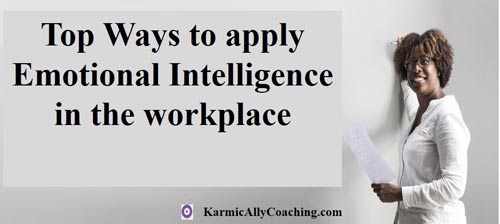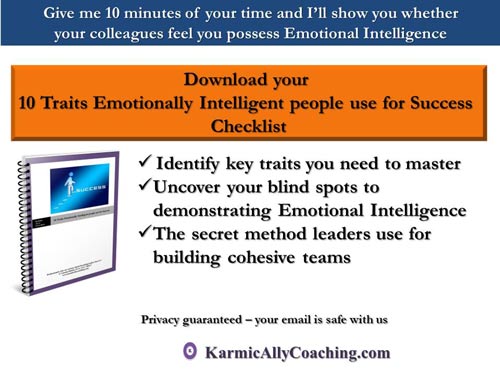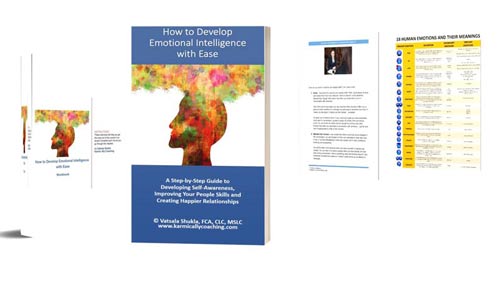This post has already been read 1332 times!

A recent question on Quora broke my heart. The person must be in a lot of pain to ask this question on an open forum.
I was given a “doesn’t meet expectations” rating in my annual review. My manager never told me anything throughout the year. Should I leave?
It brought back memories of the time I lost out on an important promotion and how I was guided not to give up but demonstrate I had what it took.
Despite the desire to run away, I took the advice and never looked back in the course of my corporate career.
Fortunately for me, my Group Manager had high Emotional Intelligence. He not only informed me in advance about this but had done it in a manner that I could hear what was being said. My guide too understood my situation while giving me sound advice.
It’s difficult to answer a question on Quora without knowing the full facts. If I was this person, I would inquire about the rating and take it up through the right channels.
Obviously, this person is still a valuable asset otherwise they would have been dismissed.
Perhaps there is an expectation communication gap that needs to be filled.
There is no way the manager would not have sent out signals or spoken to this professional. In the case that the manager didn’t, it indicates a lack of feedback skills. Perhaps both the manager and employee need more soft skill training.
They definitely need training in Emotional Intelligence.
When it comes to workplace happiness, most people get in their own way. The biggest obstacle that many people face with workplace happiness is low emotional intelligence.
I’ve covered the top 3 signs of low emotional intelligence in this post.
Emotional intelligence is your ability to identify and manage your emotions, as well as those of other people.
How you manage your feelings at work can make all the difference in your career.
Here are some of the top ways that you can put emotional intelligence to work.

Practice Deep and Focused Listening
While communicating with colleagues, you always want to practice deep and focused listening.
When the other person is speaking, avoid rehearsing your response. Instead, make it a point to focus your mind and attention on asking clarifying questions to help you better understand what the person is saying.
At the end of the conversation, make sure that you summarize and provide feedback on what you think you heard the individual say. Then ask if your summary is an accurate portrayal of the conversation.
Start Paying Attention to Body Language
When you’re at work, start noticing the body language or nonverbal communications of those around you. Pay attention and learn to recognize when body language isn’t consistent with the words being spoken.
Start getting used to interpreting body language as a way to understand the complete communication of your colleagues and employees. With practice, you will get better at recognizing nonverbal signs.
Coming back to the Quora question, it is quite possible the professional missed the body language cues.
Avoid the urge to Blame Others
Take responsibility for your actions and outcomes.
People who always blame others for their misfortunes are never successful in their personal or professional life.
When you get caught up in useless behaviors and emotions, you end up losing precious time and perspective that could help you create a more enjoyable work experience.
If you fill your workday with blame and venting, you’re only setting yourself up for even more disappointment and dissatisfaction.
Instead of looking at externals or other people to take the rap for your situation, stop and consider how much you have contributed by your actions to the outcome. Think of how you will handle similar situations in the future.
You may not be able to change what’s happened but at least you will avoid future mistakes.
Check Your Attitude
You can increase your emotional intelligence and make your workplace more enjoyable if you check your attitude.
If you go to work with a sour mood, or always see everyone else as wrong, you’re the one that will ultimately lose out. Your attitude is a matter of perspective, and your perspective matters.
If you try telling the story from someone else’s eyes, you’ll start seeing different ways that you can change your plan and increase your emotional intelligence at work.
This is where practicing the skill of perceptual positions helps to create harmony and improve working relationships.
If you find yourself unhappy with your current job, you may need to work on your emotional intelligence.
Utilize these simple ways for putting your emotional intelligence to work for you. Start enjoying all the opportunities that begin to present themselves.
Looking for a practical method to enhance your Emotional Intelligence? You want this self-study bundle.
Get The Ultimate Guide to Developing Emotional Intelligence





 I adhere to the Certified Coaches Alliance Code of Ethics and Standards. A copy is available on request.
I adhere to the Certified Coaches Alliance Code of Ethics and Standards. A copy is available on request.
 Let's Talk through the Connect Form:
Let's Talk through the Connect Form:
Great Advice! Often easy to get caught up in the emotion or drama of a situation, but if taking the time to tune in like you suggested, you may be able to see it more clearly and respond appropriately. Thanks for your tips!
You’re welcome Kris. Thank you for sharing your perspective and adding to the conversation.
I wish I’d had all of this great information when I was working a 9 to 5. This will help so many women!
Thank you for the compliment, Barb. It seems the challenges and problems you had during your career are still around even now. I really hope more women read this post.